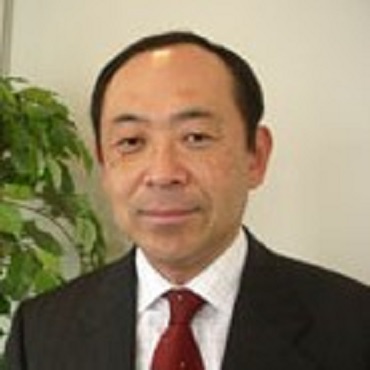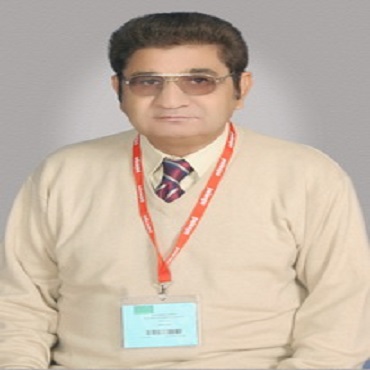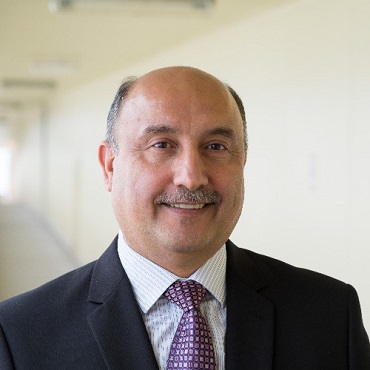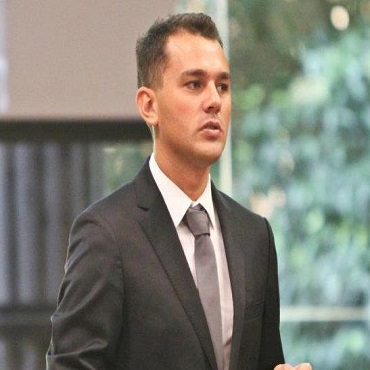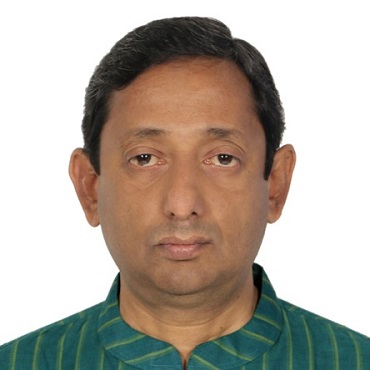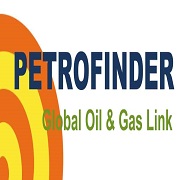
Recycling 2020
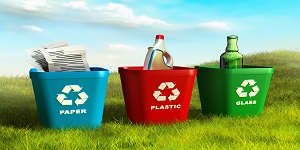
Theme: Recycle Today for a Better Tomorrow
Webniar on Recycling and Waste Management all the global emirates in this department to share their research at this exclusive scientific program held in Rome, Italy during July 10, 2020 (8:30AM Rome, Italy Time Zone) which based on the theme "Recycle Today for a Better Tomorrow".
Scientific Session: Recycling Basics, Rubber & Plastic Recycling, Paper Recycling, Agriculture & Food Waste Recycling, Chemical & Industrial Waste Recycling, Solid Waste Management, E-Wastes Recycling and Management, Effect of 3Rs on climate change, Waste Treatment Technologies, Waste to Energy, Petrochemical and Oil Recycling, Recycling Business.
Scientific Session
Track 1: Recycling Basics
Recycling is the process of collecting and processing materials that would otherwise be thrown away as trash and turning them into new products. Recycling can benefit your community and the environment. Successful recycling also depends on manufacturers making products from recovered materials and, in turn, consumers purchasing products made of recyclable materials. Does your part "close the loop" and buy products made of recycled materials whenever possible. Recycling is the process of collecting and processing materials that would otherwise be thrown away as trash and turning them into new products. Recycling basics mainly deals with what can I recycle, where can I recycle, how can I recycle? Reduce Recycling and Reuse of material resources, including circular economy.
Related Conference:
Plastics Recycling Conference, February 17 - 19, 2020, Nashville, USA | 2nd World Congress on Recycling, May 14-15, 2020, Rome, Italy | SCON World Convention on Waste Recycling and Reuse, March 05-06, 2020, Tokyo, Japan | 12th World Congress and Expo on Recycling, April 22-23, 2020 Berlin, Germany.
Track 2: Rubber, Plastic & Recycling Technology
Rubber and plastic it is important for both environmental and economic reasons, there is a continuing broad based interest in recycling of scrap rubber and development of recycling technologies. The major application of scrap rubber, particularly as crumb, is outside the conventional rubber industry. More than half of the scrap is burned for its fuel value for generation of electricity and as a component in cement production. The utilization in extension of asphalt in road construction is now recognized to provide superior road performance and reduced cost. Scientists have estimated that the potential commodity value of waste plastic may be in excess of $300 per ton when used in process pathways yielding high-value chemical products or to produce electricity in efficient IGCC (Integrated Gasification Combined Cycle) processes
Related Conference:
The International Exhibition for Plastics Recycling, June 03 – 04 2020, Messe Essen, Germany | International Conference on Environmental Technology and Recycling, May 21 - 22, 2020, London, United Kingdom | Paper & Plastics Recycling Conference, October 23-25, 2019, Chicago, USA | The 6th Agricultural Plastics Recycling Conference & Trade Show, August 19-21, 2020, San Diego, California, USA.
Track 3: Paper Recycling Technology
Paper recycling is the process of recovering waste paper and remaking it into new products. Recycling provides several socio-economic development benefits as well as environmental benefits. The process of paper recycling is the recovery of waste paper products and reprocessing these into new products. For example, paper waste products can be recycled into lower-quality bathroom paper. With recycling, it is not possible to deliver a same quality product as the original waste paper product. In other words, quality losses are inevitably incurred within the recycling process. In the case of paper products, this primarily means that fiber strength and length are reduced.
Related Conference:
Plastics Recycling Conference, February 17 - 19, 2020, Nashville, USA | 2nd World Congress on Recycling, May 14-15, 2020, Rome, Italy | SCON World Convention on Waste Recycling and Reuse, March 05-06, 2020, Tokyo, Japan | 12th World Congress and Expo on Recycling, April 22-23, 2020 Berlin, Germany.
Track 4: Agriculture & Food Waste Recycling
Recycling wastes in agriculture is an essential disposal method, and according to waste characteristics can produce supplementary organic-matter resources (sewage sludge, compost) for crop production, or valuable soil amendments (coal fly-ash). However, since heavy-metal content in waste materials is often higher than in the soil, application rates have to be carefully controlled, to obviate the possible accumulation of toxic metals in agricultural soils. The risk of the possible pollution of crops by heavy metals makes it necessary to use guidelines for waste utilization. Food waste is food that is lost during any of the four stages of the food supply chain: (1) producers, (2) processors, (3) retailers, and (4) consumers.
Related Conference:
The International Exhibition for Plastics Recycling, June 03 – 04 2020, Messe Essen, Germany | International Conference on Environmental Technology and Recycling, May 21 - 22, 2020, London, United Kingdom | Paper & Plastics Recycling Conference, October 23-25, 2019, Chicago, USA | The 6th Agricultural Plastics Recycling Conference & Trade Show, August 19-21, 2020, San Diego, California, USA.
Track 5: Chemical & Industrial Waste Recycling
Industrial and chemical waste is the waste produced by industrial activity which includes any material that is rendered useless during a manufacturing process such as that of factories, industries, mills, and mining operations. Chemical waste may fall under regulations such as COSHH in the United Kingdom, or the Clean Water Act and Resource Conservation and Recovery Act in the United States. In the U.S., the Environmental Protection Agency (EPA) and the Occupational Safety and Health Administration (OSHA), as well as state and local regulations also regulate chemical use and disposal.
Related Conference:
Plastics Recycling Conference, February 17 - 19, 2020, Nashville, USA | 2nd World Congress on Recycling, May 14-15, 2020, Rome, Italy | SCON World Convention on Waste Recycling and Reuse, March 05-06, 2020, Tokyo, Japan | 12th World Congress and Expo on Recycling, April 22-23, 2020 Berlin, Germany.
Track 6: Solid Waste Management
Solid waste refers to the range of garbage arising from animal and human activities that are discarded as unwanted and useless. Solid waste is generated from industrial, residential and commercial activities in a given area, and may be handled in a variety of ways. Solid waste management is a term that is used to refer to the process of collecting and treating solid wastes. It also offers solutions for recycling items that do not belong to garbage or trash. As long as people have been living in settlements and residential areas, garbage or solid waste has been an issue. Waste management is all about how solid waste can be changed and used as a valuable resource.
Related Conference:
The International Exhibition for Plastics Recycling, June 03 – 04 2020, Messe Essen, Germany | International Conference on Environmental Technology and Recycling, May 21 - 22, 2020, London, United Kingdom | Paper & Plastics Recycling Conference, October 23-25, 2019, Chicago, USA | The 6th Agricultural Plastics Recycling Conference & Trade Show, August 19-21, 2020, San Diego, California, USA.
Track 7: E-Wastes Recycling and Management
E-Waste describes discarded electrical or electronic devices. Used electronics which are destined for refurbishment, reuse, resale, salvage recycling through material recovery, or disposal are also considered e-waste. Informal processing of e-waste in developing countries can lead to adverse human health effects and environmental pollution. The rapid expansion of technology and the consumption driven society results in the creation of a very large amount of e-waste is every minute.
Related Conference:
Plastics Recycling Conference, February 17 - 19, 2020, Nashville, USA | 2nd World Congress on Recycling, May 14-15, 2020, Rome, Italy | SCON World Convention on Waste Recycling and Reuse, March 05-06, 2020, Tokyo, Japan | 12th World Congress and Expo on Recycling, April 22-23, 2020 Berlin, Germany.
Track 8: Effect of 3Rs on Climate Change
Effect of 3Rs on Climate Change depends on Reduce, reuse and reuse to decrease ecological change. Natural change is any genuine change in proportions of climate, which consolidate temperature, precipitation, precipitation, snow and wind. When we use the environment as a waste dump, we take away land from wildlife, pollute the environment, and deplete natural resources. One way people are doing their part to protect the environment is adopting the Reduce, Reuse, and Recycle Waste Program.
Related Conference:
The International Exhibition for Plastics Recycling, June 03 – 04 2020, Messe Essen, Germany | International Conference on Environmental Technology and Recycling, May 21 - 22, 2020, London, United Kingdom | Paper & Plastics Recycling Conference, October 23-25, 2019, Chicago, USA | The 6th Agricultural Plastics Recycling Conference & Trade Show, August 19-21, 2020, San Diego, California, USA.
Track 9: Renewable Waste Management
Waste Management has made investments to put the waste we manage to reuse. In some case, that means recycling, while in other cases that means creating energy. At about 130 disposal sites, we use naturally-occurring landfill gas to power homes and businesses. Just recently, we even developed the technology to convert landfill gas into a fuel our fleet vehicles can run on. Using landfills, It has produce over 550 megawatts of electricity, which is enough to power more than 440,000 homes. This amount of energy is equivalent to offsetting over 2.2 million tons of coal per year.
Related Conference:
Plastics Recycling Conference, February 17 - 19, 2020, Nashville, USA | 2nd World Congress on Recycling, May 14-15, 2020, Rome, Italy | SCON World Convention on Waste Recycling and Reuse, March 05-06, 2020, Tokyo, Japan | 12th World Congress and Expo on Recycling, April 22-23, 2020 Berlin, Germany.
Track 10: Waste to Energy
Waste to Energy (WTE), is a term that is used to describe various technologies that convert non-recyclable waste into usable forms of energy including heat, fuels and electricity. WTE can occur through a number of processes such as incineration, gasification, pyrolysis, anaerobic digestion, and landfill gas recovery. Currently, the world generates 1.3 billion tonnes of Municipal Solid Waste (MSW) annually.
Related Conference:
The International Exhibition for Plastics Recycling, June 03 – 04 2020, Messe Essen, Germany | International Conference on Environmental Technology and Recycling, May 21 - 22, 2020, London, United Kingdom | Paper & Plastics Recycling Conference, October 23-25, 2019, Chicago, USA | The 6th Agricultural Plastics Recycling Conference & Trade Show, August 19-21, 2020, San Diego, California, USA.
Track 11: Petrochemical and Oil Recycling
Used oil can be developed into lubricants, processed into fuel oils, and used as raw substances for the Refining and Petrochemical Industries. Used oil filters include reusable scrap steel, which metal producers can use as scrap feed. To recycle used oil, processors and refiners remove water, insoluble, dust, heavy metals, nitrogen, chlorine, and oxygenated compounds from oil tired from motors or other machines. The resulting product—called “re refined” oil—need to meet the identical stringent refining, compounding, and performance requirements as virgin oil for use in car, heavy-responsibility diesel and different inner combustion engines and hydraulic fluids and equipment oils.
Related Conference:
Plastics Recycling Conference, February 17 - 19, 2020, Nashville, USA | 2nd World Congress on Recycling, May 14-15, 2020, Rome, Italy | SCON World Convention on Waste Recycling and Reuse, March 05-06, 2020, Tokyo, Japan | 12th World Congress and Expo on Recycling, April 22-23, 2020 Berlin, Germany.
Track 12: Recycling Business
The recycling industry has undergone changes during the last 30 years, including market fluctuations, the types of materials managed and how materials are collected and processed. European nations are at present empowering Renewable vitality from regular sources to lessen the ecological contamination.
Related Conference:
The International Exhibition for Plastics Recycling, June 03 – 04 2020, Messe Essen, Germany | International Conference on Environmental Technology and Recycling, May 21 - 22, 2020, London, United Kingdom | Paper & Plastics Recycling Conference, October 23-25, 2019, Chicago, USA | The 6th Agricultural Plastics Recycling Conference & Trade Show, August 19-21, 2020, San Diego, California, USA.
Track 13: Biomedical and Infectious Waste Management
It may also include waste associated with the generation of biomedical waste that visually appears to be of medical or laboratory origin (e.g., packaging, unused bandages, infusion kits, etc.), as well research laboratory waste containing biomolecules or organisms that are mainly restricted from environmental release. Biomedical waste is distinct from normal trash or general waste, and differs from other types of hazardous waste, such as chemical, radioactive, universal or industrial waste. Medical facilities generate waste hazardous chemicals and radioactive materials. While such wastes are normally not infectious, they require proper disposal.
Related Conference:
The International Exhibition for Plastics Recycling, June 03 – 04 2020, Messe Essen, Germany | International Conference on Environmental Technology and Recycling, May 21 - 22, 2020, London, United Kingdom | Paper & Plastics Recycling Conference, October 23-25, 2019, Chicago, USA | The 6th Agricultural Plastics Recycling Conference & Trade Show, August 19-21, 2020, San Diego, California, USA.
Market Analysis
Scope and Importance:
Efficient recycling technology is becoming increasingly more important and it is estimated that the worldwide recycling equipment and machinery market will exceed US$ 1.2 billion (EUR 1.05 billion) by 2025. Baler presses will dominate the machinery landscape with a 30% share in the overall recycling equipment and machinery market, according to the report. Analysts anticipate that metal baling will record a compound annual growth rate of 5.7% over 2018-2025, with a target revenue of US$ 390 million by 2025.
Meanwhile, the plastic recycling equipment and machinery sector is expected to witness ‘significant gains’ over the coming eight years. This niche market will see a year-on-year growth rate of 6.3% during the 2018-2025 periods, with target revenue of US$ 470 million by 2025. The study points out that an estimated 7.7 billion tonnes of plastic is manufactured across the globe every year; out of which 5.4 billion tonnes is not recycled.
The Asia Pacific region’s market is forecast to exceed US$ 450 million by 2025, with China as a major revenue earner. PET bottle recycling generally encompasses the procedures of waste collection, sorting, shredding, and molding. Market Research Future (MRFR) indicates a CAGR of 5.28% in the global PET bottle recycling market over the forecast period of 2018-2023. The global PET bottle recycling market was valued at USD 4,381.3 Mn in 2017 and is due to reach USD 5,933.6 Mn by the end of 2023.
The Global Universities:
Europe:
- Ca' Foscari University of Venice, Italy
- Centrale Nantes, France
- Politecnico di Milano, Italy
- University of Pavia, Italy
- International Recycling Conferences Aalto University, Finland
- University of Glasgow, Scotland
- Iuss Institute For Advanced Study, Pavia, Italy
- University of Central Lancashire, England
- Chalmers University of Technology, Sweden
- Aalto University, Finland
- Kaunas University of Technology, Lithuania
- University of Central Lancashire, England
- RWTH International Academy, Germany
- International Climate Change Conferences, Teesside University, United Kingdom
- University Carlos III of Madrid, Spain
U.S.A:
- University of Texas Austin, TX
- Virginia Tech, VA
- Georgia Institute of Technology, GA
- International Recycling Conferences University of California—Berkeley, CA
- University of Illinois—Urbana-Champaign, IL
- Stanford University, CA
- University of Michigan,
- University of Colorado, CO
- Massachusetts Institute of Technology, MA
- Yale University, CT
- Carnegie Mellon University , PA
Asia:
- Huazhong University of Science and Technology, China
- University of Tokyo, Japan
- Kyushu University, Japan
- National University of Singapore, Singapore
- Ngee Ann Polytechnic, Singapore
- Shanghai Jiao Tong University, China
- Zhejiang University, China
- Sichuan University, China
- University of science and technology Beijing, China
- Graduate School at Shenzhen Tsinghua University, China
Major Recycling and Waste Management Associations across the Globe:
- Solid Waste Association of North America (SWANA)
- Municipal Waste Management Association MWMA
- The Medical Waste Management Association
- Ontario Waste Management Association
- Hong Kong Waste Management Association
- Central New York Chapter of the Air & Waste Management Association
- Dutch Waste Management Association
- Air & Waste Management Association
- Alabama Recycling Coalition
- Fed Center - National Solid Wastes Management Association (NSWMA)
- Aluminum Association, Inc. (DC)
- American Forest and Paper Association
- American Iron & Steel Institute (DC)
- Arizona Recycling Coalition
- Arkansas Recycling Coalition
Webinar on Recycling and Waste Management helps to inform and attract new customers quickly and efficiently. The size and diversity of our advertising options, including banners, sponsored emails, article alerts or newsletters, provide clients with the very best customized marketing opportunities in science and medicine.
We are one of the renowned events organizing platform with most of eminent speakers and business audience form all over the globe indexed. The advertising platform we provide you is the best chance of showcasing your products/services, and branding your company.
If you are looking for a global exposure for your products and services, this is the right place for you. With over 5 million readers worldwide and nearly 3million hits a month on our website, we have engaged audience of students, research scholars, scientists, doctors, professors, pharmacists and professionals from companies across the domains. We maintain high quality and ethical standards of publication industry, which make us unique and better than the rest.
Our attendees can be your upcoming customers. If you sell research materials, recycling products, chemicals or relevant equipment or services, here is the opportunity to advertise in the website that can connect you to leading experts and science specialists worldwide.
Advertisement banner must be provided in high resolution jpg or jpeg format by the advertising company and must not have copyright infringement. We can also support your events and conferences by providing you with high quality reprints of published articles that can add value to your event.
For any queries regarding advertising opportunities, please contact:Â recycling@annualmeetings.net; sponsor@meetingsint.com
Meetings International is announcing Young Scientist Awards through 4th Global Summit on Recycling and Waste Management (Recycling 2020) which is scheduled at Miami, USA during July 09-10, 2020. This Recycling conference focuses on Recycle Today for a Better Tomorrow.
Recycling 2020 and upcoming conferences will recognise participants who have significantly added value to the scientific community of environmental science and provide them outstanding Young Scientist Awards. The Young Scientist Award will provide a strong professional development opportunity for young researches by meeting experts to exchange and share their experiences at our international conferences.
Recycling 2020 focuses mainly on Recycling Basics, Rubber, Plastic & Recycling Technology, Paper Recycling Technology, Agriculture & Food Waste Recycling, Chemical & Industrial Waste Recycling. Recycling conference operating committee is providing a platform for all the budding young researchers, young investigators, post-graduate/Master students, PhD. students and trainees to showcase their research and innovation.
Eligibility:
Young Scientists, faculty members, post-doctoral fellows, PhD scholars and bright Final Year MSc and M.Phil. Candidates. Persons from Scientific Industry can also participate.
Benefits: The Young Scientist Feature is a platform to promote young researchers in their respective area by giving them a chance to present their achievements and future perspectives.
- Acknowledgement as YRF Awardee
- Promotion on the conference website, Young Researcher Awards and certificates
- Link on the conference website
- Recognition on Meetings Int. Award Page
- Chances to coordinate with partners around the world
- Research work can be published in the relevant journal without any publication fee
Criteria:
- All presented abstracts will automatically be considered for the Award.
- All the presentation will be evaluated in the conference venue
- All the awards will be selected by the judges of the award category
- The winners of the Young Scientist Award will receive award certificate.
- The awards will be assessed as far as plan and format, intelligence, argumentation and approach, familiarity with past work, engaging quality, message and primary concerns, parity of content visuals, and by and large impression.
Guidelines:
- All submissions must be in English.
- The topic must fit into scientific sessions of the conference
- Each individual participant is allowed to submit maximum 2 papers
- Abstract must be submitted online as per the given abstract template
- Abstracts must be written in Times New Roman and font size will be 12
- Abstract must contain title, name, affiliation, country, speakers biography, recent photograph, image and reference
Conditions of Acceptance:
To receive the award, the awardee must submit the presentation for which the award is given, for publication at the website, along with author permission. Failure to submit the PPT, and permission within the designated timeframe will result in forfeiture of award.
Award Announcements:
Official announcement of the recipients will occur after the completion of Recycling Conference.
Meetings International & Recycling and Waste Management 2020 offer several awards given to recognize outstanding scholarly contributions to the field of international studies. These awards have different committees, nominating procedures and submission deadlines. They recognize 1. Best Organising Committee Member Award; 2. Excellent Keynote talk Award; 3. Outstanding Speaker Award; 4. Outstanding Young Researchers’ Forum Award; 5. Best Poster Award.
Â
Best Organizing Committee Member Award: Recycling 2020 will honour the individual who has demonstrated exemplary support and guidance throughout the conference. Recipients of the award are considered to have advanced in the field of Recycling and Waste management through research or service.

Excellent Keynote Speaker Award: Opening remarks or presentation at Recycling 2020 sets the tone or theme of the event and motivates attendees. Excellent Keynote Award will be given to the speaker who has made significant contributions to the field of Recycling and Waste Management but also made a difference with their presence during the recycling conference.

Outstanding Speaker Award: Recycling 2020 perceives the individuals who have made significant and imaginative walks in education system. This honour perceives advancement in instructing methodologies and strategies just as in conveying oral presentation in conference. This honour explicitly centres on the uniqueness and creativity that expands member’s interests.

Outstanding Young Researchers’ Forum Award: This award recognizes individuals in the early stages of their careers that have already made outstanding research, teaching, and/or service contributions to the field of information systems.

Best Poster Award: This award recognizes individuals from poster presenters who have display their outstanding research and findings for an innovative future. Recipients of the award are considered to be the Best Poster Presenter of the conference.

Criteria:
- All presented abstracts will automatically be considered for the Award.
- All the presentation will be evaluated in the conference venue
- All the awards will be selected by the judges of the award category
- The winners will be formally announced during the closing ceremony.
- The winners of the Poster Award will receive award certificate.
- The awards will be assessed as far as plan and format, intelligence, argumentation and approach, familiarity with past work, engaging quality, message and primary concerns, parity of content visuals, and by and large impression.
Guidelines:
- All submissions must be in English.
- The topic must fit into scientific sessions of the conference
- Each individual participant is allowed to submit maximum 2 papers
- Abstract must be submitted online as per the given abstract template
- Abstracts must be written in Times New Roman and font size will be 12
- Abstract must contain title, name, affiliation, country, speaker’s biography, recent photograph, image and reference
- Each poster should be approximately 1x1 M long. The title, contents and the author’s information should be clearly visible from a distance of 1-2 feet.
- Recycling Basics
- Rubber & Plastic Recycling Technology
- Agriculture & Food Waste Recycling
- Chemical & Industrial Waste Recycling
- Solid Waste Management
- E-Wastes Recycling and Management
- Effect of 3Rs on Climate Change
- Renewable Waste Management
- Waste to Energy
- Petrochemical and Oil Recycling
- Recycling Business
- Expert Opinion on Environmental Biology
7 Organizing Committee Members
7 Renowned Speakers
Riyadh Al-Ameri
Deakin University, Australia
Australia
Ambrosini Stefano
Waste Management Specialist Ltd.
Italy
Irene Man Chi Lo
Chair Professor, The Hong Kong University of Science & Technology
Clear Water Bay
Hong Kong
Fariba Dehghani
Professor, The University of Sydney
Australia
Dale Scott Marion
Director, Pfane Environmental Association
Romania
Macole Sabat
ASME UOB Student Section Advisor, University of Balamand
Lebanon
A K M Maksud
Executive Director,Grambangla Unnayan Committee
Bangladesh



